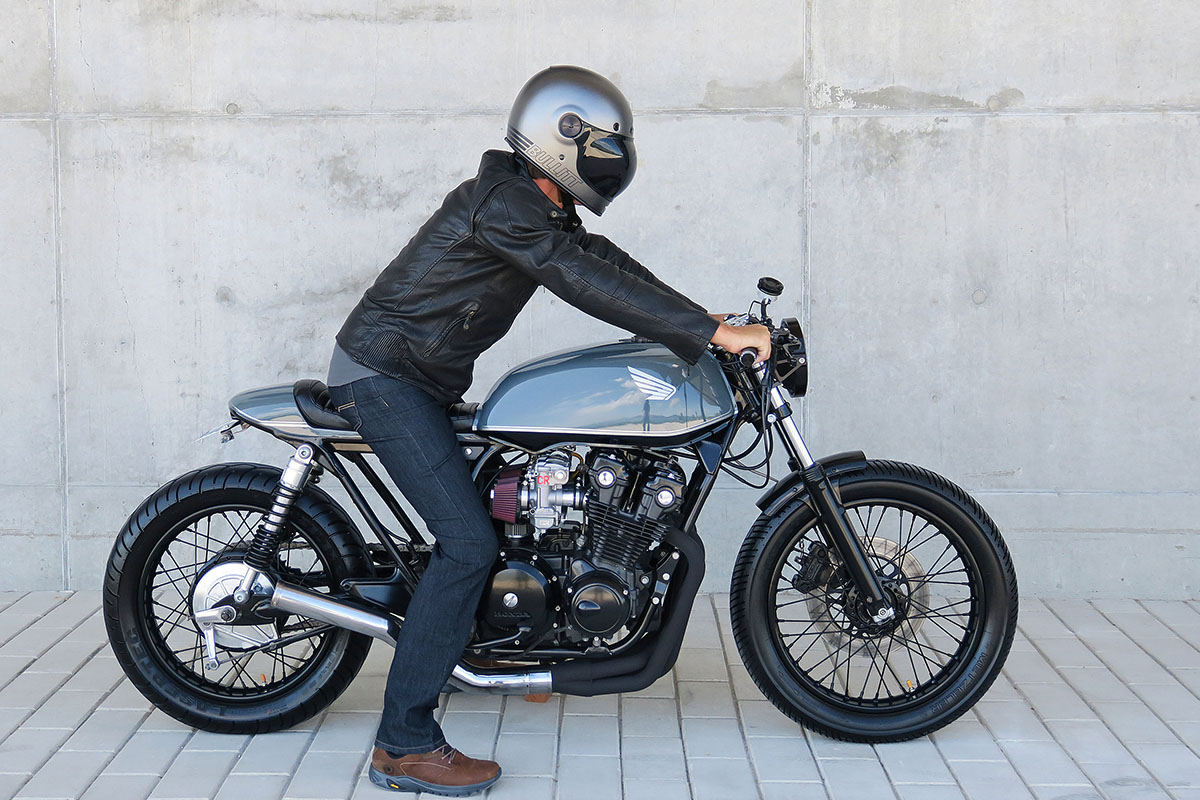

Installing the rear suspension was much more complicated. Colin modified the Daytona yokes to get the forks to fit, added new turn stops, and built a beefy headlight mount into the lower triple. The forks are 41mm USD units, with twin disc brakes and four-piston calipers to match. “The CB750 from that era was odd-in that it was a bitchin’ engine wrapped in tame geometry and mushy, uninspiring components.” Colin wanted his creation to ride like a modern sportbike, so he started with new suspension and brakes from the Triumph Daytona 675. “I knew this bike was going to have a deep overhaul, but I wanted it to still exude that simplicity.” They’re only as complicated as needed, and just seem to work,” says Colin. “I’ve always been a sucker for Honda engines. The donor bike was a bone stock 1993 CB750 Nighthawk picked up in Texas. So I’m going to hold onto this CB750 for a few seasons.” I sold my last build shortly after it was finished, and immediately regretted it. “This is a personal build, for the time being. “It lets me step away from life as a carpet walker for a bit, get my hands dirty, and use engineering in a very creative way,” he tells us. This café racer comes from Colin Darling, a mechanical engineer from Ashland, Oregon, who likes to build customs in his spare time.

In particular, DOHC bikes from the 90s are fair game-like this 1993 CB750 Nighthawk. You wouldn’t want to mess with a good condition SOHC machine from the 70s, but the later generations were a bit of a mixed bag. It’s one of the all-time greats, and was a game-changer for the Japanese motorcycle industry. The first generation Honda CB750 has a peerless reputation.


 0 kommentar(er)
0 kommentar(er)
